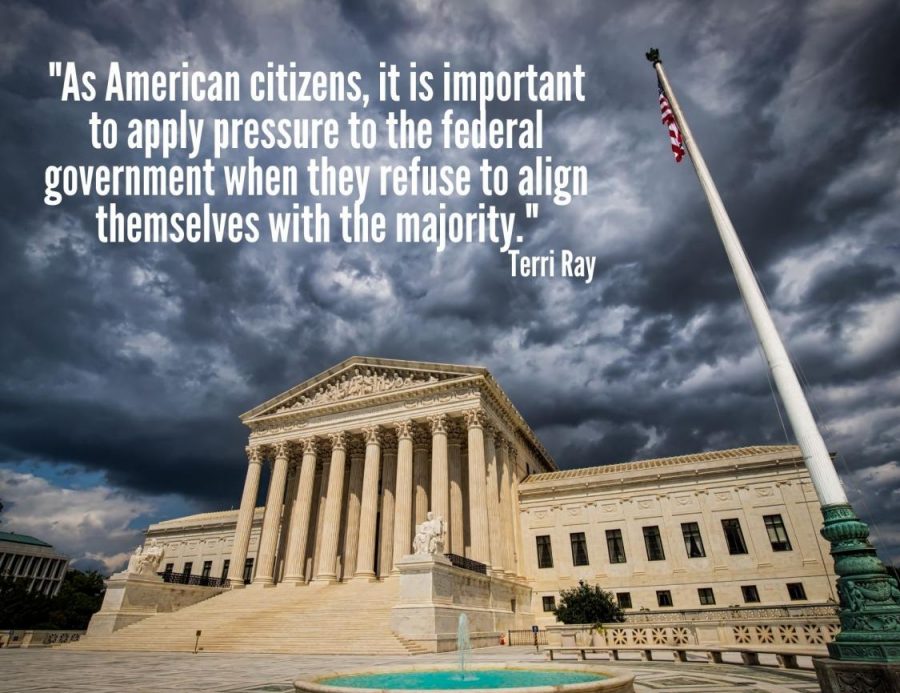Concerns legitimate as Barrett heads to Supreme Court
photo or infographic by Terri Ray
As American citizens, it is important to apply pressure to the federal government when they refuse to align themselves with the majority.
In light of the passing of Justice Ruth Bader Ginsburg, Justice Amy Coney Barrett was appointed to the Supreme Court by President Donald Trump and confirmed by the Senate in late October. As a result of Barrett’s appointment, the Supreme Court became skewed in favor of conservatives. While a justice’s duty may be to interpret the constitutionality of legislation, it would be irresponsible to assume that their morals and upbringing do not influence their decisions on the bench. On the surface, Barrett’s personal judgements and religious affiliations are simply parts of her character, but in practice, these beliefs can misrepresent the American citizenry in its entirety.
It is well known that Barrett has been a devout Catholic for much of her life, but in a country that practices the “separation of church and state,” it is reasonable to question whether or not she will follow this assertion. In spite of Barrett’s extensive legal experience- serving as a clerk for Justice Antonin Scalia and a law professor at Notre Dame- when compared to other justices, Barrett has limited experience as a judge- serving a mere three years on the 7th Circuit Court of Appeals. Over the course of her time in the law profession, Barrett frequently allowed religion to dictate her stances on issues such as abortion. When speaking on Roe v. Wade, Barrett described the ruling as “erroneous” and “immoral” using her religious background to substantiate her claims. According to an NPR poll, majority of Americans want to maintain women’s rights to abortion with minor modifications. Barrett’s stance on abortion does not align with the overwhelming majority of Americans, and this can put an unfortunate halt to the current evolution of American society.
For racial and ethnic minorities, Barrett’s record is even more troubling. In a recent 2019 case, Smith v. Illinois Department of Transportation, Barrett excused the usage of racial slurs in the workplace, such as the n-word, as evidence of a hostile working environment. Barrett stated in her opinion that the spewing of these racial slurs and the psychological distress it resulted in “had nothing to do with his [the plaintiff’s] race.” While Barrett may not be racist, her stance on this issue was inherently tone deaf and insensitive. With the current racial climate, as seen in the Black Lives Matter Movement, one can question Barrett’s willingness to side with the oppressed rather than the oppressor. On multiple occasions, Barrett has acknowledged the presence of racism in American systems of governance, but if she continues to be complacent when faced with racist sentiments, she is just as bad as the blatantly racist individuals in America.
While it is impossible to accurately predict the future, concerns regarding Justice Amy Coney Barrett’s rulings on the Supreme Court bench are legitimate when viewing her problematic past. As American citizens, it is important to apply pressure to the federal government when they refuse to align themselves with the majority.
Your donation will support the student journalists of Willis High School. Your contribution will allow us to purchase equipment and cover our annual website hosting costs.











